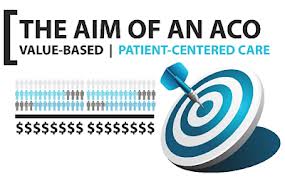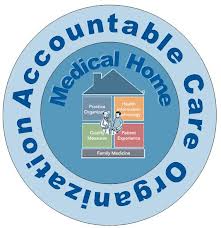 Summary: What can we expect in 2013 in terms of Accountable Care Organizations (ACOs)? Where are we headed? What considerations need to be taken into account?
Summary: What can we expect in 2013 in terms of Accountable Care Organizations (ACOs)? Where are we headed? What considerations need to be taken into account?
 Summary: What can we expect in 2013 in terms of Accountable Care Organizations (ACOs)? Where are we headed? What considerations need to be taken into account?
Summary: What can we expect in 2013 in terms of Accountable Care Organizations (ACOs)? Where are we headed? What considerations need to be taken into account?
ACOs are continuations to the Patient Centered Medical Home (PCMH) model. PCMH places the patient at the center of all decisions regarding his health care and assigns responsibility to the primary care physician to coordinate care with all other care givers involved with the patient. These might include specialists, laboratories, imaging centers, etc. If a PCMH is like a home, an ACO is more like a neighborhood. It is a group of PCMHs working together in an accountable manner which is nationally recognized through organizations such as the Centers for Medicare and Medicaid Services (CMS).
ACOs began formally being recognized in 2012. As of January 2013, there are approximately 300 ACOs. They are really taking off – leaps and bounds.
So what are some of the trends we are seeing?
- We would expect the Medicare Shared Savings Plan (MSSP) to nearly double in 2013 and continue the trend of expansion.
- We would expect Medicaid ACOs to slow in growth a bit due to the impending healthcare exchanges and Medicaid expansion which are results of the Patient Protection Affordable Care Act (PPACA). We are in a holding pattern waiting to see what is going to happen with these. 2014 will probably provide more growth for Medicaid ACOs. Medicaid also has additional challenges of instability of the population and a large emphasis on long-term care which adds to the slower growth in Medicaid ACOs as compared to Medicare ACOs.
- For states that decide to expand Medicaid, ACOs can provide additional monetary incentives which may encourage ACO expansion as well. States that have currently opted to expand Medicaid are: Arkansas, California, Connecticut, Delaware, the District of Columbia, Hawaii, Illinois, Maryland, Massachusetts, Minnesota, Missouri, Nevada, Rhode Island, Vermont, and Washington.
- We would expect a growth in the number of patient centered medical homes (PCMH). 2012 was a big year for PCMH and really was the
 turning point for health care and the focus on the patient.
turning point for health care and the focus on the patient. - States will begin to move dual eligible populations toward managed care and toward ACOs.
- Beginning in perhaps 2015 or 2016, we may see ACOs as part of the exchanges.
- We will begin to see the expansion of commercial ACOs.
- Mergers and acquisitions should rise in 2013 with the cutbacks from Medicare and the move to accountable care.
- NCQA accreditation in particular will take off in 2013. They will be accrediting ACOs and exchanges. The number of accredited organizations will grow in leaps and bounds this year.
- One can hope with all of the emphasis on primary care that more physicians will begin to choose primary care as their profession. This still remains to be seen.
What are some particular organizations doing?
- Crystal Run is glad that reimbursement has finally become a focal point when using patient centered care models. They have been practicing patient centered strategies since the 1990s and have had an EMR since 1999. They were just waiting for the rest of the country to catch up. Crystal Run just thought it was the right thing to do and didn’t do it for any other reason.
- Colorado ACO program saved $20 million in unnecessary care, of which after expenses, they were able to give $3 million back. Colorado ACO program also saw a reduction in emergency room visits and hospital readmissions. A true success story.
- North Carolina has had great success with their medical home model within Medicaid which of course is the prelude to any successful ACO.
- Aetna is on the move expanding their ACO kingdom both through partnerships with providers as well as a data analytics subsidiary.
- Kelsey-Seybold was named the first accredited ACO through NCQA
2013 and going forward are going to be very interesting and an opportunity for tremendous growth. Keeping up with all of the changes is a daunting task. What are your thoughts on ACO? Do you think they are a good concept? Do you think there are flaws? Do you think there are areas of improvement?


 turning point for health care and the focus on the patient.
turning point for health care and the focus on the patient.


